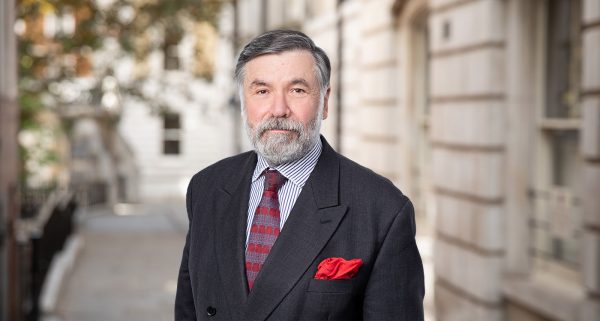Restorative Justice in Jamaica – Richard Barraclough K.C.
August 5, 2024

A group of one Kings Counsel, three retired judges (two criminal court judges and one family court judge), two international commercial lawyers one a former Nigerian Senator two medics and one author were invited by the Minister of Justice of Jamaica, Honourable Delroy Chuck KC MP to visit and observe the criminal courts in Kingston Jamaica.
The Jamaican Government through the Minister of Justice has provided the courts with considerable resources both as to infrastructure, funding and resources.
Particularly impressive is the Governments approach to restorative justice.
Jamaica retains the Judicial Committee of the Privy Council as the final appellate court. Some of us will remember appearing in appeals to the Privy Council in capital cases. Capital punishment has been in abeyance since the late 1980s.
The hierarchy of courts in Jamaica comprises the Court of Appeal, which is the highest appellate court in Jamaica, the Supreme Court which has unlimited original jurisdiction in criminal, family and civil cases. The Parish Courts are the backbone of the system. The work of these courts is “geared towards protecting the constitutional right of every Jamaican to equal and due process under the law”. The Parish Court has a civil division, special coroners court, coroners court, tax court and criminal division. The jurisdiction of the civil division is determined by value (generally J$250M).
The Criminal Division of the Parish Court will deal with most criminal cases including unlawful wounding, assault, abandoning a child, larceny, fraud, forgery, corruption, conspiracy, robbery, house breaking, criminal damage, administration of poison, drugs offences including importation and transportation. The court can try cases summarily and on indictment.
The Parish Court’s sentencing powers are limited to three year’s imprisonment save for praedial larceny (theft of agricultural and similar products) and robbery when the maximum sentence is 4 years and certain forgery offences and importing, cultivating, selling transporting and possession of cocaine when the maximum is 5 years.
There are over 800 legal aid empanelled attorneys, a 100% response rate in assigning Duty Counsel matters within 24 hours of receiving a request, attorneys for legal representation being assigned within 3 days. In 2023/2024 FY J$381M was paid for Legal Aid services, an increase from J$156M in 2016/2017 FY.
In the Parish Courts approximately 98% of cases were completed within 24 months, 90% of cases tried and completed within 12 months with less than 2.5% of cases in backlog.
The aim now is to complete simple cases within 3 months, standard cases within 6 months, complex cases within 12 months and all cases within 18 months.
Courts are being renovated, repaired and rehabilitated.
In his presentation the Minister of Justice said that Restorative Justice “continues to be one of the flagship programmes within the Social Justice Division of the Ministry. It seeks to resolve conflicts by having all parties involved in the incident as well as the community engage in a circle with a focus on restoring the relationships. This fosters a more peaceful and harmonious society. The programme has maintained a high success rate and remains readily accessible to citizens in all 14 parishes. This has been done through public awareness campaigns, restorative practice training and sensitisation sessions across civil society, schools churches and communities. In 2023/2024 the hard working RJ staff and dedicated facilitators conducted more than 2,300 case conferences for referrals concerning harms or crimes committed. A total of 1,853 agreements were signed which in most cases restored relationships between the disputing parties…we recognise that if we are to make major strides in curbing maladaptive behaviours and promote a “talk it out don’t fight it out” culture we must strengthen the partnerships with our churches and schools. Though these partnerships we have coordinated more than 381 Restorative Practices Trainings. These sessions have benefitted over 8,707 school administrators, parents and students, individuals from faith based organisations and other key stakeholders from the private sector….we are ensuring that Restorative Justice remains a solid alternative for Jamaicans to resolve conflicts with 400 trained facilitators with another 140 in training and more than 20 Justice Centres island wide..”
We sat in the Return Court presided over by Senior Parish Court Judge Honourable Sanchia Burrell. We saw Restorative Justice in practice. The process took a couple of months from the judge identifying which case might benefit from the process, the parties returning to court and informing the court what they had learnt, pleading not guilty to the indictment and the Crown offering no evidence. This was not simply the bringing together of victim and criminal after conviction. It was a means of seeking to teach those involved in mainly domestic and anti social criminal behaviour just how they might seek to resolve their differences without resorting to violence. The judge felt able to communicate directly with the defendants in tough but empathetic manner and the defendants plainly demonstrated the positive effect of restorative justice described by the judge as a “gift from the Jamaican Government”.
RICHARD BARRACLOUGH KC
HH LESLEY NEWTON former Senior Circuit Judge and Designated Family Judge
HH HERNANDEZ former Circuit Judge
HH WARNER former Circuit Judge
UDOMA UDO UDOMA commercial lawyer and senator in the Federal Republic of Nigeria from 1999 to 2007 and Federal Minister 2015-2019
SALLY UDOMA former General Counsel for Chevron Europe Eurasia and the Middle East Exploration and Production.
BILL WITTER commercial lawyer and General Counsel


